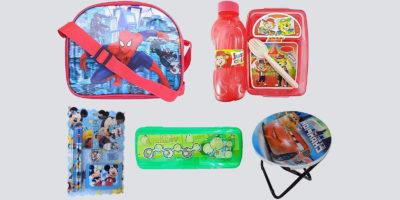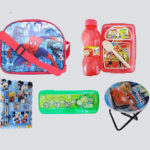
Child centric activities involving philosophical/ factual inquiry and meaningful discussions are important for children to realize that different perspectives of individuals vary according to their own thinking and understanding abilities. There is not always – the right or the wrong.
Children are stubborn, selfish, possessive and often bad listeners; they always feel that they are right. They usually expect a ‘yes’ for everything they feel or need from parents and others.
Accepting a ‘No’ is hard, so it necessary to train them to listen to others’ perspectives with an open heart. It is necessary to learn that when someone holds a view that is contradictory to ours, it means nothing more than a difference of opinion.
“Let me never fall into the vulgar mistake of dreaming that I am persecuted whenever I am contradicted.”- Ralph Waldo Emerson
A great source of learning
Contradictory opinions are growth opportunities, rather than causes of conflict. Sometimes, knowing views of others prove to be a great source of learning. If students understand this, they will develop gratitude and kindness towards others rather than feeling offended. Exchange of varied thoughts also boosts creativity.
The focus should be on the issue not the person
Meaningful argumentations facilitated through school activities would make students logically think that it is important to focus on the issue and not the person; hence this helps to develop depersonalized confrontational skills. Students would understand and respect the points of view of others too. When students learn to separate the issue from the person, i.e. depersonalization, they will not hold any grudges or develop anger towards others.
Emotional Intelligence and Mental Wellness
In this process, students not only develop good emotional intelligence but also boost their own mental wellness. While they become flexible towards acceptance of others’ perspectives and experience happiness even after listening to a ‘No’, they will stay away from anger, disappointment and other mental conflicts which disturb their own inner peace.
The smooth process
These skills have to be inculcated into children from a young age, initially it does bring controversy and heated arguments as children find it difficult to give up rigidity in their thinking. Though it is challenging, the teacher/ facilitator has to be patient and sensitive to let the process be smooth.
Encourage thinking skills and become more expressive
Initially, children need to develop the confidence to express their own thinking and learn how to provide reasons for their thinking. When children accept constructive criticism, they learn to think independently, open up more and become more expressive in sharing their thoughts.
Prepare students for the future
Students face many emotional issues, when they cannot express their problems; the problems eventually become grave which makes the students feel isolated and depressed. To keep the mental health intact, schools can allot special periods where such activities are conducted to develop emotional intelligence and depersonalized confrontation skills.
We live in the present, so facilitating these skills to address the present issues will prepare them to deal with testing times of the future.
We have ready to use school event plans designed to boost such 21st century skills and enhance knowledge in students (can be conducted online too), check – https://www.holistiquelearning.com/resources
For any other details, get in touch – contact@holistiquelearning.com or call us on 9987732393











